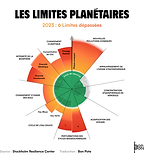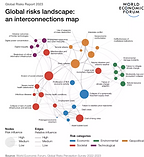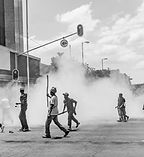


2tonnes changes
The world is changing, and 2tonnes is adapting! From January 2025, the 2tonnes project is more than just the 2tonnes workshop, it's a new vision, a new raison d'être, new workshops and new offers... Lots of changes presented in a campaign: “2tonnes... but not only!”
THE HIGHLIGHTS
Our manifesto
The ecological crisis is a central issue of the 21st century, but other major economic, political and geopolitical crises have been accumulating in recent years to form a “polycrisis”. In this changing context, 2tonnes is adapting.
This polycrisis is set to last, and it's a vicious circle: it affects our society through its direct consequences (natural disasters, wars, instabilities...) but also by weakening our ability to act collectively (tensions, divisions, mistrust, despair...) and to cope with these crises.
The ecological backlash is a good illustration of this phenomenon: through polycrisis and the erosion of our capacity to act, the ecological transition is slowing down.
As well as responding to the ecological transition and the various issues at stake, we need to be robust: ready to face new crises, maintain a certain stability and stay the course while adapting. This means cultivating our capacity for collective action, which is based on 5 pillars:
-
a pragmatic relationship with information
-
trust
-
a common course
-
hope
-
the ability to compromise

The ecological crisis is a central issue of the 21st century, but other major economic, political and geopolitical crises have been accumulating in recent years to form a “polycrisis”. In this changing context, 2tonnes is adapting.
This polycrisis is set to last, and it's a vicious circle: it affects our society through its direct consequences (natural disasters, wars, instabilities...) but also by weakening our ability to act collectively (tensions, divisions, mistrust, despair...) and to cope with these crises.
The ecological backlash is a good illustration of this phenomenon: through polycrisis and the erosion of our capacity to act, the ecological transition is slowing down.
As well as responding to the ecological transition and the various issues at stake, we need to be robust: ready to face new crises, maintain a certain stability and stay the course while adapting. This means cultivating our capacity for collective action, which is based on 5 pillars:
-
a pragmatic relationship with information
-
trust
-
a common course
-
hope
-
the ability to compromise
-
La crise écologique affecte déjà les sociétés, avec des effets largement observés et documentés
-
Du fait de ses liens avec les enjeux sociaux, elle fait craindre des conséquences bien pires
-
et met en tensions les ressources nécessaires à un développement juste pour toutes et tous

The ecological crisis is a central issue of the 21st century, but other major economic, political and geopolitical crises have been accumulating in recent years to form a “polycrisis”. In this changing context, 2tonnes is adapting.
This polycrisis is set to last, and it's a vicious circle: it affects our society through its direct consequences (natural disasters, wars, instabilities...) but also by weakening our ability to act collectively (tensions, divisions, mistrust, despair...) and to cope with these crises.
The ecological backlash is a good illustration of this phenomenon: through polycrisis and the erosion of our capacity to act, the ecological transition is slowing down.
As well as responding to the ecological transition and the various issues at stake, we need to be robust: ready to face new crises, maintain a certain stability and stay the course while adapting. This means cultivating our capacity for collective action, which is based on 5 pillars:
-
a pragmatic relationship with information
-
trust
-
a common course
-
hope
-
the ability to compromise
-
Les crises se multiplient, sont de plus en plus interconnectées, et s'amplifient
-
Leur multiplicité et leur complexité pose un défi majeur pour l'humanité
-
C'est la stabilité et la résilience des systèmes mondiaux qui est en jeu

The ecological crisis is a central issue of the 21st century, but other major economic, political and geopolitical crises have been accumulating in recent years to form a “polycrisis”. In this changing context, 2tonnes is adapting.
This polycrisis is set to last, and it's a vicious circle: it affects our society through its direct consequences (natural disasters, wars, instabilities...) but also by weakening our ability to act collectively (tensions, divisions, mistrust, despair...) and to cope with these crises.
The ecological backlash is a good illustration of this phenomenon: through polycrisis and the erosion of our capacity to act, the ecological transition is slowing down.
As well as responding to the ecological transition and the various issues at stake, we need to be robust: ready to face new crises, maintain a certain stability and stay the course while adapting. This means cultivating our capacity for collective action, which is based on 5 pillars:
-
a pragmatic relationship with information
-
trust
-
a common course
-
hope
-
the ability to compromise
-
La division croissante des opinions et des valeurs exacerbe les tensions
-
Cela réduit notre capacité à dialoguer et à coopérer sur des enjeux cruciaux comme la polycrise et la crise écologique,
-
Ce qui affaiblit la cohésion sociale et la recherche de solutions collectives
This is what 2tonnes is proposing in its new approach, by implementing several changes: a new purpose, evolving modes of action and, in particular, new educational workshops.
And we are announcing all these new offers in a campaign called “2 tons… but not only that!”
Our manifesto
Nous souhaitons que l’humanité progresse de manière stable et durable, en restant unie, dans un espace de vie marqué par des crises plus fortes, complexes et entremêlées.
Et pour cela, nous pensons que les sociétés doivent évoluer pour atteindre 3 objectifs :
-
Garantir un espace juste et sûr pour l'humanité (ce que nous propose la théorie du Donut, développée par Kate Raworth)
-
Bâtir leur capacité à faire face aux aléas (la robustesse, concept développé par Olivier Hamant)
-
Augmenter leur capacité d’action collective, en développant un rapport pragmatique à l'information, un cap commun, de la confiance entre les acteurs, de l'espérance dans nos chances de succès, et la capacité à faire des compromis.
FOR COMPAGNIES
New offers to adapt to different contexts and audiences
Companies face a wide range of challenges and crises. These challenges are specific to each company and require a dedicated approach. So, what needs do you identify to support your organization's ecological and social transition?
Outiller les individus et les collectifs pour renforcer la capacité de nos sociétés à répondre simultanément à la crise écologique, à l’instabilité, et à la hausse des tensions.






